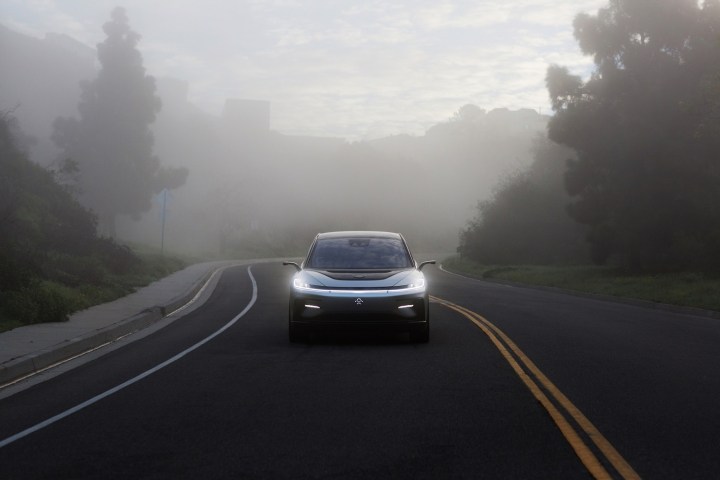
Was it successful? According to at least one analyst, not so much.
Founder and CEO Jia Yueting admitted his company’s money problems are “far worse than expected,” according to Reuters. The company recently obtained billions of dollars from investors, including a Chinese property developer named Sunac, but the infusion is not enough to cover all of its debts. And it doesn’t come close to ensuring LeEco can continue to fund its numerous projects while remaining competitive globally.
LeEco will consequently need to “dispose of some fixed assets and even equity assets” in the coming months, Jia explained during an annual shareholder meeting of Leshi Internet Information & Technology, one of its businesses. Notably, it allegedly sold all of its shares in California-based, China-backed Lucid Motors for several hundred million dollars. It also canceled plans to build an electric, high-performance sedan with Aston Martin, forcing the British brand to completely rethink its strategy. The model — which is based on the V12-powered Rapide — is still on track for production, but it will arrive a year late, cost significantly more than expected, and be limited to just a few hundred units.
Jia conceded the main source of LeEco’s financial issues is its ambitious foray into the automotive industry. It wants to take down Tesla with a namesake brand that will sell in China, and a brand called Faraday Future that focuses on the North American market. Both car-building arms are trying to start production as fast as possible in order to become assets instead of burdens, but building cars is more expensive and a lot more difficult than it sounds.
“[LeEco] has spread itself too thin and not focused on one thing. In particular I think the strategy to build a car has sucked too much capital leaving insufficient [capital] for anything else,” analyst Dr. Richard Windsor told Digital Trends.
Windsor explains that, as it stands, LeEco’s owner is facing two options. The first is to sell or close every car-related company it runs and focus on providing media over the internet, which is how the company began. Taking this route would mean admitting defeat, a disconcerting move in the tech industry, but it would allow the company to stop bleeding cash almost overnight.
Option number two is staying the course. The company can keep trying to excel in every segment it dabbles in, including the automotive industry, but it’s a risky bet that could end in failure, according to Windsor. If that happens, LeEco could be scooped up by another Chinese jumbo tech company like Baidu, Alibaba, or Tencent. In an odd twist of fate, Tencent purchased a five-percent stake in Tesla last May.
“Please give LeEco two to three years, and allow us to stand up for the second time,” Jia requested during the meeting.
Faraday Future could not be reached for comment.



